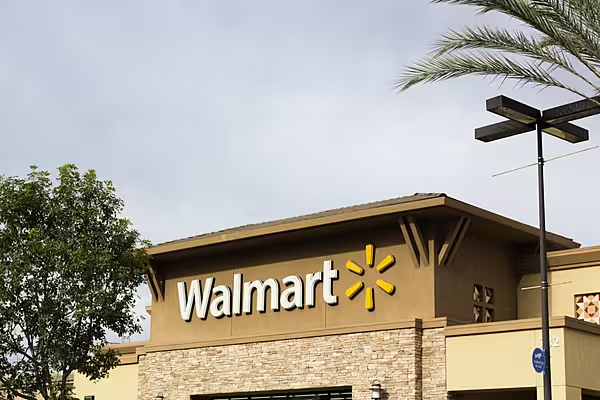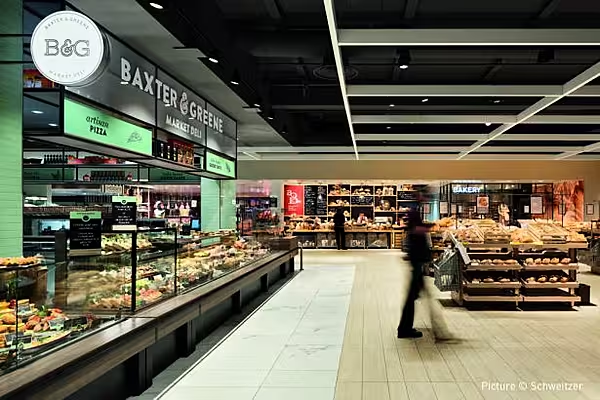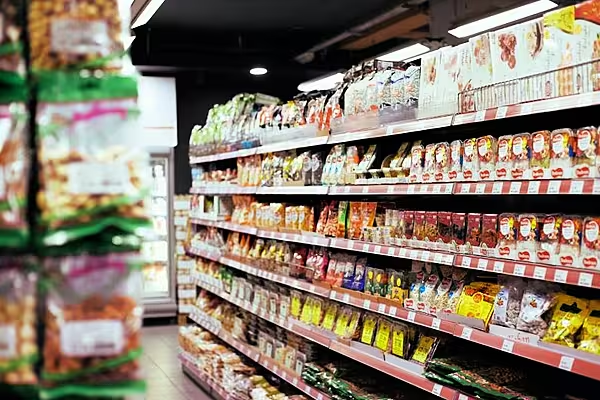So far, it's mostly been about Amazon. But Wal-Mart Stores Inc. has a new foe. And it's one it has lost out to before in Europe. It mustn't repeat the same mistakes in its homeland.
The world's biggest retailer has been investing heavily in e-commerce in an effort to catch up with Amazon.com Inc. And as my colleague Shelly Banjo has argued, that's paying off. Walmart's online sales are surging.
But there's a new competitive front coming: Lidl, the German privately owned no-frills supermarket, will open its first US stores in two weeks time. What's more, this is inspiring Aldi, the rival German discounter that has been there for the last 40 years, to modernise the majority of its existing American outlets, and open hundreds of new ones. Crucially, Aldi doesn't like to be beaten on price, so don't expect it to take Lidl's arrival lying down.
Competition
Walmart, which holds its annual shareholder meeting today, is being assaulted on two fronts. It must simultaneously keep defending itself against Amazon, while beating back the European attack.
It's not as if it hasn't been here before. Asda, its UK arm, has been hurt by these discounters, partly because it didn’t go far enough in reducing its prices. It was known for its cheap groceries. When it lost that crown, it had little else to fall back on.
Up to now, Walmart seems to have learned from Asda's failings. It has been aggressively lowering prices. It needed to. Scott Mushkin, analyst at Wolfe Research, found that as of late last year, a basket of own-brand food and groceries was 24 percent cheaper at Aldi than Walmart. He expects Lidl's offer to be similarly pitched.
The push has helped Walmart's US same-store sales. But it needs to keep its finger on the price-cutting button. Asda was quick to spot the perils of the discounters, and slash accordingly. It also pledged to invest £1 billion ($1.3 billion) on the tactic. But its efforts fizzled out, making it the worst-performing British supermarket over the past two years. Walmart says it will invest several billion dollars in price over the next three years.
E-Commerce Focus
It's also an argument for Walmart to keep its e-commerce focus. Not only is Amazon not standing still - just look at the grocery pickup kiosks that it has opened in Seattle - but it might actually be a way to keep the discounters at bay.
Their online activities are limited - for example, Aldi UK sells its special-offer non-food items, as well as wine, and not much else. A full grocery offering doesn't sit easily with the discounters' keep-it-simple mantra. So this could be an opportunity for Walmart to defend its territory.
Ironically, the fight isn't just about price. While those at the discounters might compare with entry-level groceries at traditional supermarkets, quality is often on par with their mid-tier ranges. And in the UK, Aldi and Lidl have won over more-affluent customers with their premium products, from lobster to macaroons. For mainstream food retailers, that's a signal to look at re-engineering their own-label goods to compete on price and quality. This is already underway at Walmart, and seems to be another lesson it's learnt from Asda's troubles.
Continued Investment
Another form of defence is doing other things the discounters don't. In Walmart's case, that could mean making the most of offerings to shop online but pick up in-store, financial services and pharmacies.
But this also means continued investment. At least Walmart has plenty of firepower - for all its challenges, it still has a big balance sheet and is hugely cash generative. But the online expansion and price cuts have kept margins flat.
With arch rivals Aldi and Lidl about to start battling for supremacy in the US grocery market, it's hard to see pressure on margins lifting any time soon. Walmart needs to keep to the lessons from its British arm, and make sure it doesn't become the collateral damage.
This column does not necessarily reflect the opinion of Bloomberg LP and its owners.
News by Bloomberg, edited by ESM. Click subscribe to sign up to ESM: The European Supermarket Magazine.














